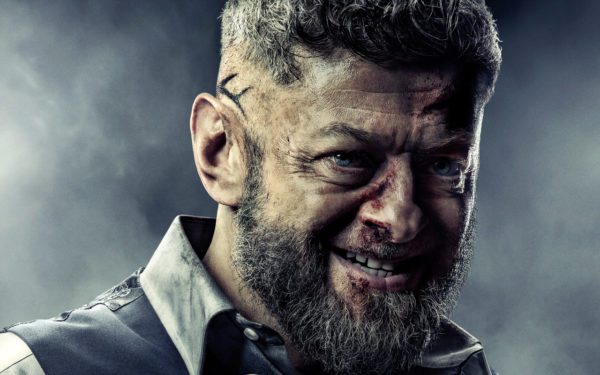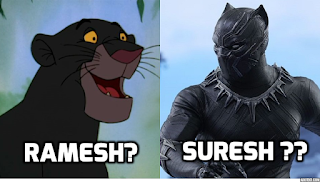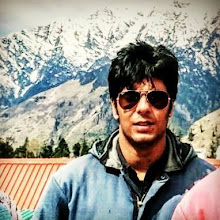
Anyone feeling a bit nostalgic
for some Magneto-Xavier love? Don’t worry! Marvel comes to the rescue packaging
the good old X-Men fight-between-ideals story in a more world-relevant issue
and throwing in a bit of monarchy and a whole lot of Africa into the mix. And
wait, there’s a bit of James Bond and the Phantom as well (those who know it
will see the connection).
And really though, it’s not at all bad.
It might just be better than expected.
 |
| Wakanda as shown in the film. |
So Marvel’s much awaited Black Panther
came out this week, with a nearly all-black cast, with the exceedingly
revolutionary concept of Afro-futurism, where we get to peek into life at
Wakanda, a hypothetical and fictional African nation which is way more advanced
than the rest of the world that shares a common Imperialist history, due to the
availability of a resource (the metal Vibranium) that allowed them to leap - technologically
and societally - ahead of other civilisations by several decades. To maintain
their superior status without getting involved in the world’s chaos, this nation uses special technology to hide in plain sight and disguise itself as a third-world country,
disconnected from world politics since the beginning of the Time of Man.
_________________________
...Black Panther is a principally commercial film from the Marvel banner with cliche’ film troupes sprinkled all over it – a monarchy in trouble, a fight for the throne between warring relatives, and the entire world somehow in danger; many might even find some fleeting similarities with The Lion King in terms of the general plot movement.
But that doesn’t mean that the film doesn’t have its merits...
_________________________
The film follows straight after
the events of Captain America: Civil War, with Prince T’Challa (Chadwick
Boseman) gearing up to take over the Wakandan throne as well as the mantle of
the Black Panther, a superhuman Wakandan protector, after the death of his
father King T’Chaka. In the process of apprehending an old enemy from Civil War
- Ulysses Klaue (Andy Serkis) – he comes across Erik Killmonger (Michael B.
Jordan) a claimant to the throne with a radically different idea on how Wakanda
should exist and what it should strive toward.
Black Panther is a principally commercial
film from the Marvel banner with cliche’ film troupes sprinkled all
over it – a monarchy in trouble, a fight for the throne between warring
relatives, and the entire world somehow in danger; many might even find some
fleeting similarities with The Lion King in terms of the general plot movement.
But that doesn’t mean that the
film doesn’t have its merits.
| Erik Killmonger (Right) challenges T'Challa (Left) for the Throne of Wakanda |
Unlike the typical
fight-for-the-crown stories, there is no unilateral device of good v. bad in the
movie, like the X-Men films. Marvel does a repetitively good job with the
character development of its villains (except for a couple of 2D villains in
the past (Obadiah Stane in Iron Man, that elf guy from Thor 2, Blonsky and General
Ross in The Incredible Hulk)) and it shows here again with Erik Killmonger. The
audience gets to sympathize with both the antagonist and the protagonist based
on their respective back-stories and no character is an absolute shade of black
or white. Shades of Character! CHARACTER!!
The film is not flimsy, and has
it’s layers. Other than a good villain, we see the development of a king and
the soon-to-be newest addition to the Avengers in their fight against Thanos in the upcoming Infinity War. The film starts with exploration into T’Challa’s relationship with
his late father, the seemingly all-good, benevolent Mufasa-like king who taught
his son the ropes of being a king, seemingly so benign he could be called a
god, but as the film advances we see a deeper spiritual connection between
father and son, through which the new king gets to learn that his seemingly
great father made mistakes too, mistakes that could seemingly shatter the
pedestal on which he placed his father, and mistakes through which he learns
that however big or great the position of a man may be, in the end he is still
a man, who must stay as close to the ground as any other. We see a mirror image
of the same in Erik Killmonger who, though fighting for an arguably noble cause
and possessing the elements of a far-reaching king, might not eventually possess
the elements befitting a good man. Also the film reasonably answers audience’s
questions regarding the source and reach of the Black Panther’s superhuman
powers, which had been left unanswered in Civil War.
__________________________________ ...Marvel does a repetitively good job with the character development of its villains and it shows here again with Erik Killmonger (Michael B. Jordan)...
__________________________________
In Black Panther, we get to see
an amazing conceptualisation of Afrofuturism and get to imagine how the African
continent might have turned out as a society with a similar or greater kind of advantage
over their Imperial oppressors, and we see this take effect in their clothes,
architecture, symbolism and it’s anything but spectacular. We see a good
connect between the design of these elements in the film and the contemporary
comic book depictions, and hats off to the entirety of the film’s costume and
VFX team for providing this visual feast.
Then we have the biggest thing to
speak about – the all black cast! For probably the first time, we have a film
that builds upon and moves forward from its roots in the ‘blaxploitation’ subgenre,
showcasing a story with a total of two white characters, and an advanced, rich
society where blacks are not a minority but the superior people; not the
criminal on the run, but the police force chasing him, complete with their own
MI5-ish intelligence organisation and cool gadgets and their own king for a James
Bond; and yet succeeding as both a mainstream universally awaited comic book
film - catering to the millions of Marvel fans the world over by providing a
neat standalone entry into the MCU’s continuity with an extremely likeable and
kickass superhero – as well as a sociological concept that sets out to tap into
a completely new audience who get a major superhero/action hero that they can
actually relate with, after nearly a century of filmmaking history.
 |
| Andy Serkis as Ulysses Klaue |
VERDICT: 4 (


 ) out of 5 toots of The
Bugle
) out of 5 toots of The
Bugle
Black Panther seeks to be much
more than a simple cliche’d popcorn flick with an all black-cast. And despite
all the familiar elements, there is eventually something new and absolutely
lovely.
P.S. - Throwback to the time we saw Black Panther first in Civil War
P.S. - Throwback to the time we saw Black Panther first in Civil War






